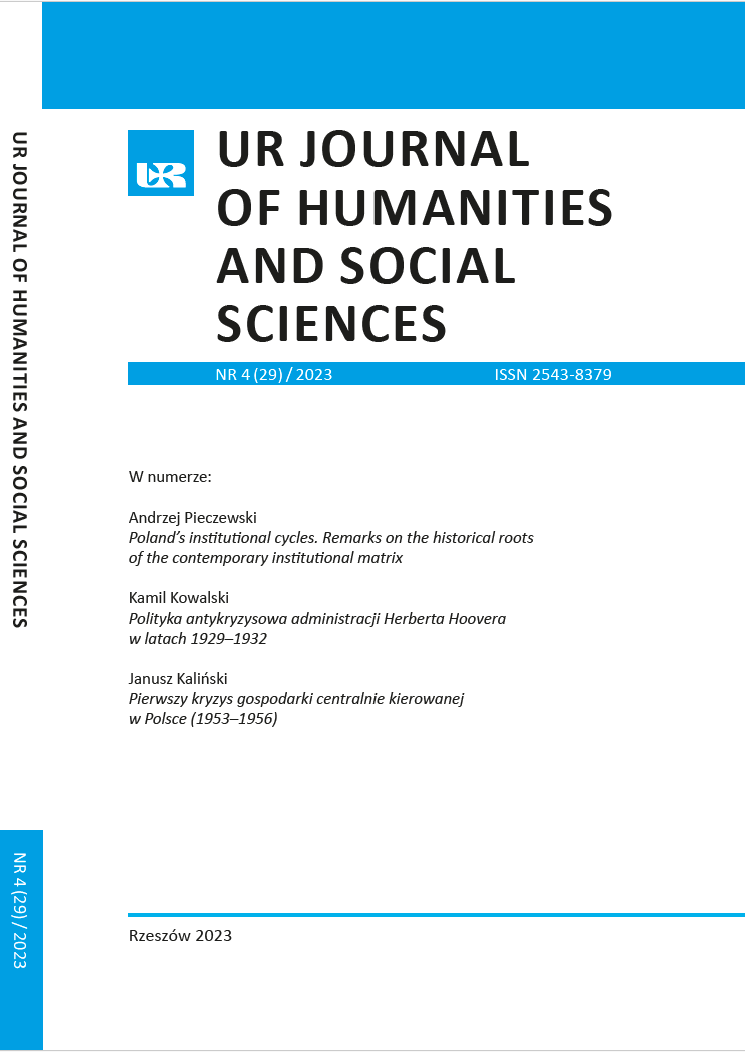The use of economic-historical analyses in explaining the process of economic development (using the Austrian school of economics as an example)
DOI:
https://doi.org/10.15584/johass.2023.4.7Keywords:
human action, economic development, Austrian school of economics, historyAbstract
One particularly important issue under analysis in economics is the theory of economic development. It derives from eighteenth- and nineteenth-century economic doctrines deeply rooted in philosophical thought. The issue of development is of interest not only to economists, but also to representatives of other social sciences. From the perspective of an economist, it seems that one of the more useful tools for analysing the problem of economic development may be the achievements of the Austrian school of economics. When studying the development process, the representatives of this school limit the mathematical modelling of phenomena occurring in the economy, while they often refer to history. They believe that the focus of economics should be human action (conducted under conditions of uncertainty), which undeniably influences development.
Downloads
Downloads
Published
How to Cite
Issue
Section
License
Copyright (c) 2023 UR Journal of Humanities and Social Sciences

This work is licensed under a Creative Commons Attribution-NonCommercial 4.0 International License.



